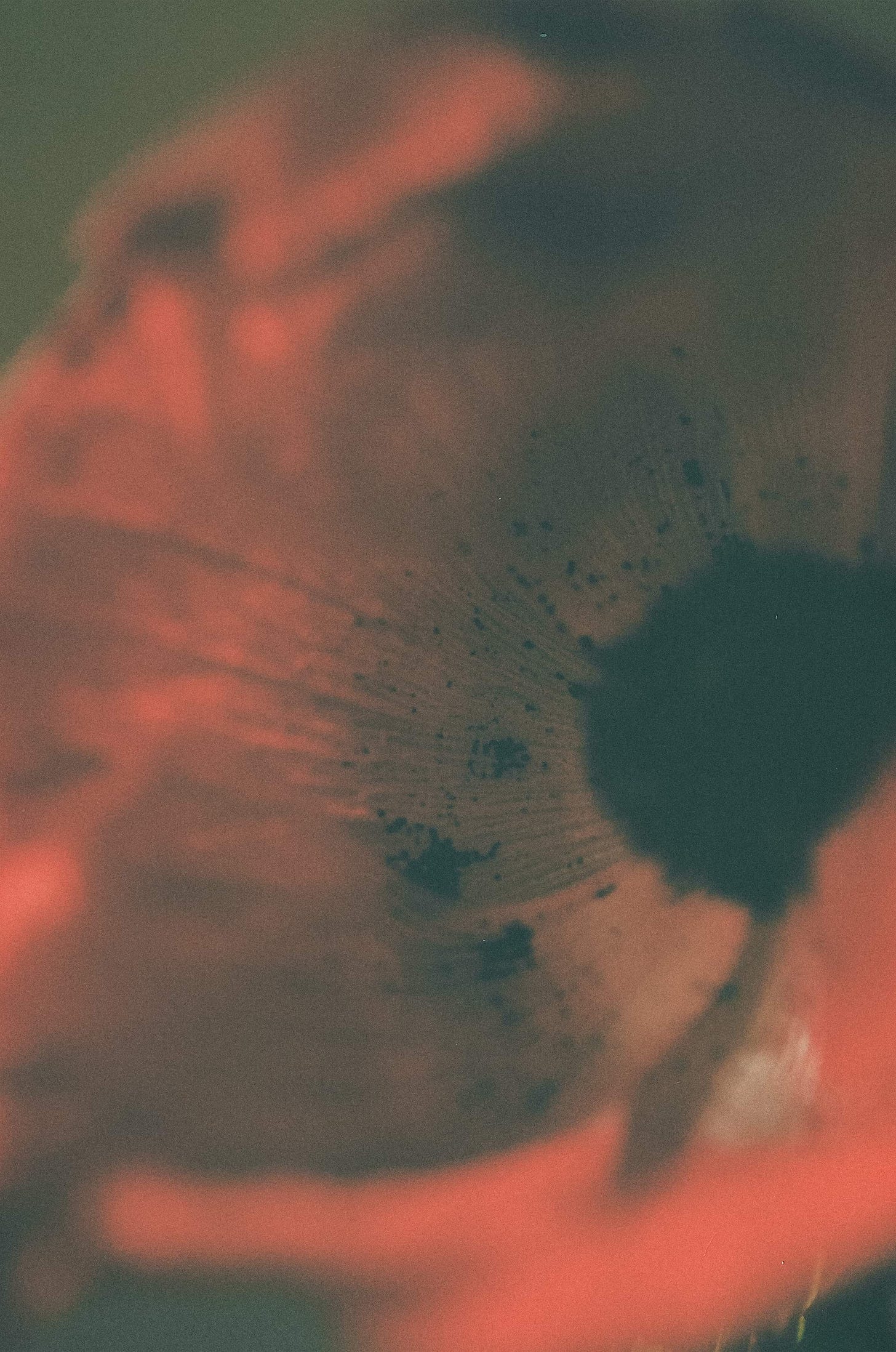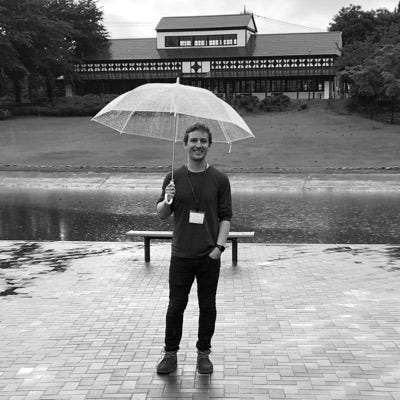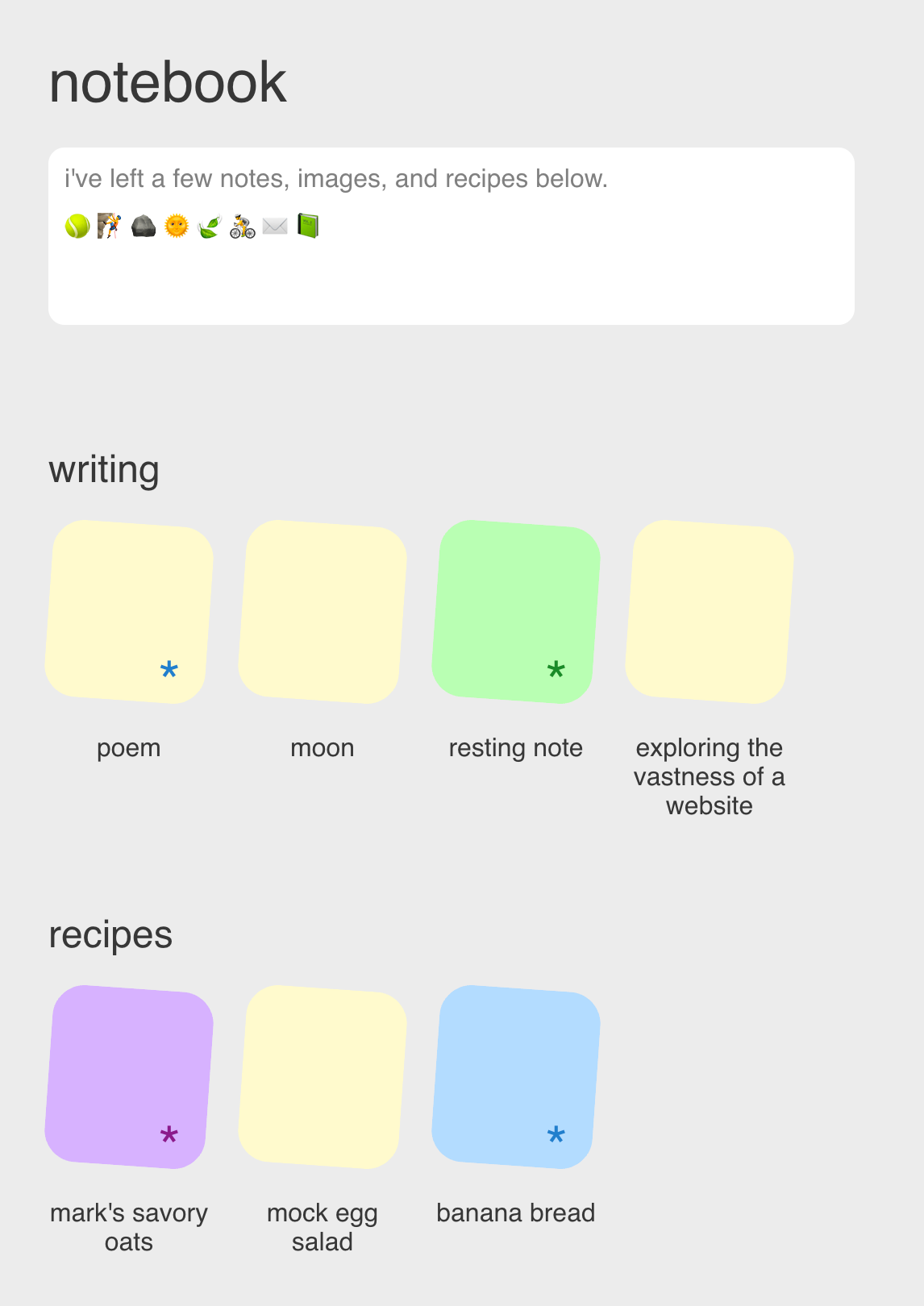How I Met Ana
... and Nick Trombley on barnsworthburning
Dear reader,
I first met Ana in Copenhagen; she first met me in Berlin. Our memories of the first encounter are not the same, which always leaves us with a pregnant pause when asked where we first met.
One thing is for sure, though. We wouldn’t have met if it was not for Techfestival, a no-longer existing gathering that assembled people in Copenhagen to talk about how technology shaped our lives and societies.
I was on the festival team, leading all the meetups and summits, and Ana was our photographer, traveling in from Berlin. I was swamped during the festival. In three days, I orchestrated a hundred events. I recall watching how my email inbox resembled a live feed with different requests, notifications, and answers arriving every minute. Only on the last day, at the reflection session, were my eyes open enough to notice Ana behind the camera.
So it was her photographs I noticed first. I had worked on many events with many photographers but had never seen anything like Ana’s photos. They were warm and calm and felt like invitations into communal memories. I also remember how I was always surprised about what Ana had photographed because, sometimes, while I was running from event to event, I would spot a beautiful scene, wishing someone would photograph it and, the next day, when I would see the photos from the previous day, Ana always had captured the exact scene.
I often think life is all about the right place at the right time. We can do our best to plan, but at the end of the day, sometimes it isn’t the right time, or we are in the wrong place. When I was at Techfestival, it was clearly the right time. But I had to wait a bit longer until the place was right, too.
My friend, Thomas, is the initiator of Techfestival. One day, I should thank him for creating an environment where I learned so much, was inspired to start Naive Weekly, and got to meet Ana. But that’s not for today because I have another, more urgent expression of gratitude to give Thomas.
When I wrote I needed help making Naive Yearly more financially sustainable, Thomas offered his support through TwentyThree. Thomas is an events veteran. Besides Techfestival, he initiated Reboot, an annual conference I never attended but still hear stories from. Thomas also joined the first two editions of Naive Yearly. To have him and TwentyThree as partners alongside Emily & Josh feels like a full-circle moment. Thank you, Thomas.
I’m looking for one final partner who can chip in financially to make Naive Yearly break even and compensate for my time. I appreciate any connection or suggestion. Another way you can help me dedicate more time to Naive Yearly—and all the other internet surreal estates, including this newsletter—is to pledge your support. I’m self-employed, and any amount makes a big difference in keeping all these projects alive and growing. The internet is beautiful; don’t believe anyone telling you otherwise.
With care,
Kristoffer
Nick Trombley: barnsworthburning
Nick Trombley is a Boston-based digital toolmaker and knowledge curator.
What is barnsworthburning?
I think of barnsworthburning as a form of commonplace book, though it has aims in common with other knowledge management tools: the digital garden, the Zettelkasten, the memex. It’s also a kind of art project / web experiment—intentionally a bit confusing, with few guideposts or explanations. The goal is to become lost, as I often am.
Why did you make it?
Mixed feelings on Le Corbusier aside, there’s a quote I love from Towards a New Architecture:
To build one's house is very much like making one’s will. When the time does arrive for building this house, it is not the mason’s nor the craftsman’s moment, but that moment in which every man makes one poem, at any rate, in his life. We have had during the last forty years not so much houses as poems, poems of an Indian summer, for a house is the crowning of a career.
In the Corbusian sense, barnsworthburning is my own house-qua-poem. The site represents some core part of me, distilled through the words and works of others who are better equipped to express it.
Who or what inspired you?
My introduction to the concept of a commonplace was Alan Fletcher’s The Art of Looking Sideways, which similarly distills Fletcher’s boundless interests to a 1,000 page ultra-dense tome. It’s designed for the random leaf-through, but I read the book cover to cover during that liminal period between education and work. Before then I’d never been much of a collector, but it convinced me to start capturing and curating my own fragments, which I’ve now been doing for over a decade.
Field notes
1.
The Confiscation of Digital Memory. Fantastic text about archiving the largest Bulgarian video site and our fragile online memory.
2.
»The new critic says “I felt nothing at all” and believes it is a negative imputation on the work. Perhaps you felt nothing at all because you approached the work with disdain, with the disgust of interpretation, because it did not rapidly satisfy some sort of loose checklist, because you did not open your heart to the work’s sensuous energy, the lovers’ embraces, the live close-ups of Juliet’s face, the beauty of ballet, because you treat the work of art as something to be decrypted, and not something to be experienced.«
— Ruby Justice Thelot in The New Critic's Disease
3.
There is no ‘Nice’ Web. Yet. Learn about the People’s Computer Company, Whole Earth Catalog, and early Internet Surf Clubs. Meanwhile, I’m less drawn to the militaristic and data-driven interpretations of the internet. They are not incorrect, but I wish more essays rooted the internet in the linking practice of footnotes. Footnotes feel generous and expansive, in contrast to the control and extraction of military and data. To experience the internet differently, we also need to describe and observe it differently.
4.
Calls for Participation: Ensemble Park is open for submissions (Due 2/4), The Creativity Pioneers Fund is open for applications (Due 7/4), FM[Ai]R is looking for residents (Due 10/4), Game Poems is open for submissions (Due 15/4), ELO Awards are open for nominations (21/4), Lullaby Machine is open for submissions (Due 1/5), and Processing Foundation is looking for fellows (Due 2/5).
5.
Poetic Web Calendar: Diagramming Workshop (Berlin, 30/3), Computer Care Cafe (NYC, 6/6), Softer Internet Futures (London, 12/4), and Extratonal: Multispecies Festival (Rotterdam, 25-27/4)
Kiosk: HTML Templates
What? Templates that give you a bird’s-eye view of how websites are built. You can use these templates just as they are, or customize them to your liking so you can become more comfortable working with HTML and CSS.
Who? Elliott Cost is an artist from Hawaii, living in Rotterdam. He is behind special.fish, gossipsweb.net, html.energy, and many other of my favourite places on the internet. Elliott is also a frequent collaborator, I made diagram.website and internetphonebook.net with him.
Price? From $8.
Wayside flowers
Strange Time: An exhibition of novel time keeping
Calling Cards: 123 artist calling cards and their stories
RetroFlix: Watch classic movies, cartoons and forgotten TV
Fish Doorbell: If you see a fish, press the doorbell
Blue Hideouts: You can’t escape the great blue tarp
Slow Consumption: Selected PDFs worth reading and keeping
Trail Mosaic: Draw with lichen, fungi, and slime molds
Last email was sent to 4436 inboxes. You can send questions, comments, products, sites, links, and more to kristoffer@naiveweekly.com.






